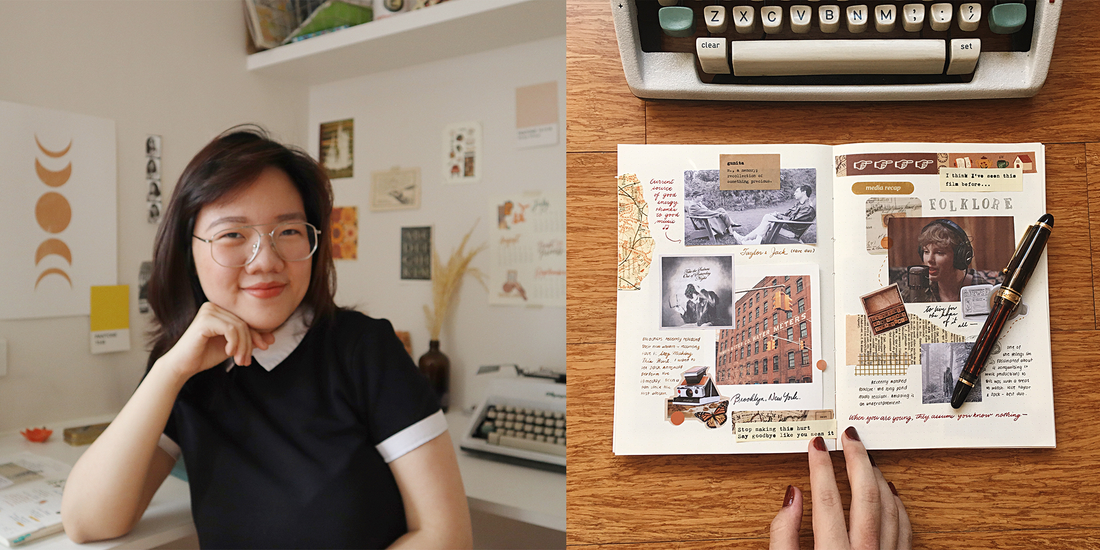Today we're learning from Abbey Sy, an artist, best-selling author and small business owner from Manila.
At 22, she quit her Advertising job and pursued a full-time creative career, and never looked back. Over the years, she pursued different creative passions —from writing and illustrating bestselling books, freelancing for brands, giving talks and hosting workshops, and running a small stationery business.
We chat with her about the latter and how her systems & workflows changed over the years as she grow her business and as an individual.
 Abbey Sy and her journal spread.
Abbey Sy and her journal spread.
You have been a creative entrepreneur for almost 10 years now. How have your operations changed from when you started vs now?
Abbey: Back then, I wasn't really familiar with managing a business in general—of course, it's something I learned from experience. I would say the big changes that happened mostly entailed switching to a different e-commerce platform (I moved to Shopify in January 2020), as well as really honing in on what my shop's mission is—to help make art accessible to more people through books, stationery, and tools.
In your recent Youtube series, you talked about using Notion as a tool in managing your business. Why is it your favorite?
Abbey: After trying out different apps to organize my workflow, I found Notion to be most customizable to my needs. At the same time, it's been so useful to see everything in one homepage, and then subsequently to each subpage depending on the tasks needed for a specific time period.

Abbey's Shop Notion Dashboard (L). Abbey packing orders with The Good Trade's Compostable Plant-based mailer (R).
Notion is an eco-system on it's own and can seem overwhelming especially for beginners! Any actionable tips?
Abbey: Figure out what works for you. Check out different videos and tutorials for inspiration, but still ask yourself: what do I want out of my Notion pages, and how will this help me get things done better?
- Take time out to set up your Notion pages. This can take a few days but it will be worth the planning time. I spent around a week going back and forth with my setup, and every few months I would refresh some pages in need of an update.
- Get creative. The best part of using Notion is the functionality and creativity you can add in your pages. I decorated my Dashboard / homepage to reflect my personality and chose my favorite colors and graphics to inspire me to do the work.
In a way, before setting up Notion, you must also establish workflows and figure out how to manage your schedule. What's the best way to go about this?
Abbey: There isn't a universally best way, but I find that what works for me is time blocking and separating specific days as I see fit (e.g. MWF for Patreon, TTHS for shop). I don't plan by year, but I try to plan early on what to focus on every quarter (3 months) to see how that plays into my overall weekly and daily schedule.
Watch this video to get your Notion dashboard up and running!






